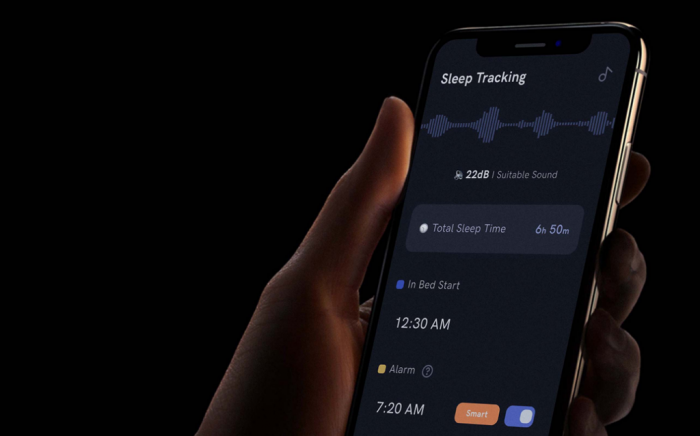Korean startups
Korea startup unveils AI for sleep study with smartphones
Asleep says the technology will enable polysomnography without wearable devices and improve accuracy
By Jul 20, 2022 (Gmt+09:00)
2
Min read
Most Read
Samsung steps up AR race with advanced microdisplay for smart glasses


When in S. Korea, it’s a ritual: Foreigners make stops at CU, GS25, 7-Eleven


Maybe Happy Ending: A robot love story that rewrote Broadway playbook


NPS yet to schedule external manager selection; PE firms’ fundraising woes deepen


US auto parts tariffs take effect; Korea avoids heavy hit



A South Korean startup has unveiled an artificial intelligence model for medical analysis of sleep based on breathing sounds recorded by smartphones, paving the way to tracking slumber with more convenience and accuracy.
Asleep Inc. said on Wednesday its research with Seoul National University Bundang Hospital, a leading domestic medical center, showed measures of sleep stages – awake, light sleep, deep sleep and rapid eye movement (REM) sleep – were more accurate with the model than those with wearable devices such as a smartwatch.
“It was the world's first AI model that analyzes sleep stages based on breathing sounds recorded by smartphones at a medical level similar to the accuracy of polysomnography (PSG),” Asleep’s Chief Technology Officer Hong Joonki said in a statement.
Sleep study has been relying on wearable devices such as accelerometers, smartwatches, and piezoelectric monitors, as well as non-contact equipment, especially radar-based devices with high-quality microphones that record sounds at a close distance of some 25 centimeters. But those are not suitable for daily use by the general population as they are expensive and inconvenient.
Researchers of the startup and the hospital studied AI technologies that are able to analyze even the slightest sound of breath recorded on a smartphone at a distance.
ANALYSIS BASED ON SOUNDS RECORDED BY SMARTPHONES
Asleep analyzed if the AI model can measure sleep stages after recording breathing and snoring sounds with smartphones and existing PSG devices.
The research team examined 1,154 audio data routinely recorded by a solitary microphone chip during PSGs and 327 audio data recorded by a smartphone.
The AI model logged 0.66 of an average sensitivity, which measures the degree of response to changes in sleep stages, while the sensitivity of wearable devices stood at 0.63 at most, the result showed.
“Amid the growing attention to the sleep study at home worldwide, the joint study with Seoul National University Bundang Hospital will enable PSGs only with a smartphone that will be more convenient as people do not need wearable devices,” said Asleep Chief Executive Officer Lee Dongheon. “In addition, they have increased accuracy through AI.”
The company plans to expand the results to various studies for related subjects such as sleep apnea, Lee said.
The results of the study were published in the latest issue of Nature and Science of Sleep, a renowned global academic journal.
Write to Ji-Hyun Lee at bluesky@hankyung.com
Jongwoo Cheon edited this article.
More to Read
-

-
 Corporate investmentLG Electronics breaks ground on $600 mn home appliance plant in India
Corporate investmentLG Electronics breaks ground on $600 mn home appliance plant in India17 HOURS AGO
-

-
 E-commerceCoupang’s Q1 revenue up; quarterly dip signals rising competition
E-commerceCoupang’s Q1 revenue up; quarterly dip signals rising competitionMay 07, 2025 (Gmt+09:00)
-
 Asset managementKorea Investment & Securities deepens global ties with 2nd IR in New York
Asset managementKorea Investment & Securities deepens global ties with 2nd IR in New YorkMay 07, 2025 (Gmt+09:00)
Comment 0
LOG IN


